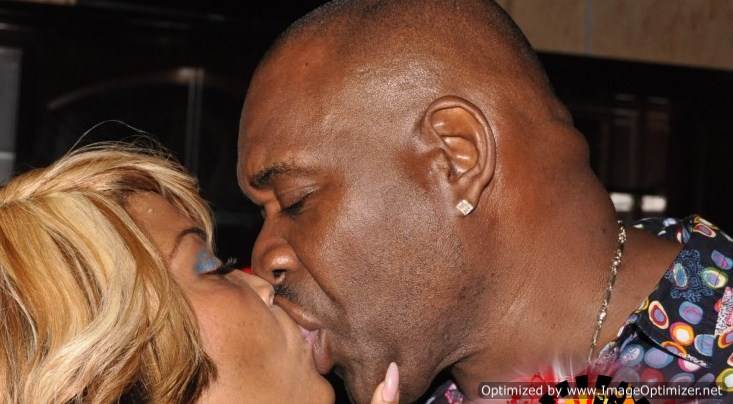WTF AFRICA- MAN GETS TIME FOR RAPING CHICKEN

27-year-man facing jail term for RAPING CHICKEN to DEATH
A 27-year-old man is facing 15 years in jail after being convicted of sexually abusing a chicken which later died.
The magistrate court found Goliath Nyirenda (27) guilty of the offence and committed him to the High Court for sentencing. He was caught abusing the chicken on November 18 last year.
Mr Tiwilili said the offence was a serious one which carried a maximum sentence of 15 years and fell under the jurisdiction of the High Court.
Nyirenda was convicted of one count of unnatural offence contrary to Section 155b of the Criminal Procedure Code (CPC), a charge he denied.
Nyirenda said during trial that on the fateful night around 22:00 hours, he returned from a drinking spree and was later woken up by the owner of the chicken Gift Michelo.
He said Mr Michelo locked him in his house and went to call his neighbours before he was handed over to the police for no reason.
But in his testimony, Mr Michelo testified that on the night of the event around 23:00 hours he was woken up by a chicken which was making noise. He traced the noise to Nyirenda’s house.
When he entered the house, he saw Nyirenda throw the chicken through the window in panic. Mr Michelo picked the chicken and realised that it was his and when he checked it, he noticed that it was soiled behind by Nyirenda. He then called the police who arrested him.
EMOTIONAL TRIANGLE- GOODMORNING
 Drama (Emotional) Triangle
Drama (Emotional) Triangle
Ecclesiastes 4:12b
A threefold cord is not quickly broken.
This verse is often quoted in the context of marriage, acknowledging the need that married couples have for stabilizing their relationship by creating a “triangle” with God as the third leg. One, two, or four legged seats are unstable, but a three legged stool is stable. So it is with one’s physical and emotional life. We were intended by our Creator to be raised in a loving “triangle” with our mother and father, but oftentimes the tendency to form triangles is distorted and becomes unhealthy.
One of the main insights gleaned from research into family systems theory is the role of “triangulation” or “interlocking emotional triangles.” One theorist saw triangles as the basic “molecule” of an emotional system, or the smallest stable relational system. Examples of these emotional triangles abound. An unhappy wife forms a triangle with one or more of her children. An unhappy husband emotionally triangulates with his work, or by having an affair. Much gossip and backbiting is “triangulation” instead of “confrontation.”
Creating triangles does not seem to be optional, but fulfills something stemming from a deep drive for emotional connection in human beings. What is more profitable is to triangulate deliberately and acknowledge God as the third leg whenever possible. Counselors, therapists, and pastoral caregivers learn to help people by teaching them to “detriangulate” and directly confront the individual with whom they have conflict.
A particularly interesting and universal emotional triangle was identified by Stephen Karpman, M.D. in an article he wrote in 1968. He identified a toxic social triangle called the “Drama Triangle,” or what another person called a “blame machine,” involving three interdependent roles: Victim, Persecutor, and Rescuer (each capitalized to distinguish them from real victims, villains, and rescuers). The emphasis in this study is the way the three roles work together in a dramatic dynamic. The study did not diminish the idea that people are truly victimized (victim), act heroically (rescuer), and sometimes hurt each other (persecutor). The Victim role is different from a true victim, as in a rape case, and refers to an attitude of heart, or habitual way of relating to the world.
In this triangle, the three roles form a dynamic system that generates considerable energy in maintaining itself and trapping the participants, and this energy is not usually harnessed to any constructive end. All that is generated by the triangle is “drama,” or emotional intensity. Sometimes this is exactly what people are looking for in their lives, more so than accomplishment or mutually fulfilling relationships.
The Drama Triangle is very common in dramatic arts and literature. Dramatic tension is created by establishing the villain’s character, and causing the reader or viewer to identify with the victim or victims. To resolve this mounting tension, a Rescuer must be introduced. Snidely Whiplash is the archetypal villain, ousting fair Nelle from her rental home because she couldn’t pay the rent, and tying her to the railroad tracks. Enter Dudley Doright to save the day. And some variation of the theme is involved in virtually all narrative dramatic art. Role reversals also create dramatic interest, when the Victim turns out to be the Rescuer (Gladiator), the Persecutor becomes the Rescuer (Terminator 2), or the Rescuer becomes the Persecutor (any police corruption story).
The Drama Triangle is centered on the role of the Victim, which Karpman depicted by placing that role as the bottom point of the triangle.
Because the triangle is anchored by the Victim, blame and guilt emitted by the person in that role fuel the engine and keep the process moving around and around. Karpman viewed interrupting the Victim role as the key to defusing the system, but he also identified the Persecutor role as the exit point. If one is trapped in a system like the Drama Triangle, only when he or she is willing to be perceived as the Bad Guy can one remove himself or herself. Learning to be comfortable and non-anxious even when labeled a Persecutor or a Bad Guy is necessary to break the power of the Triangle.
The Victim position is the one the others revolve around. To liken Victims to a weather system, they are like a low-pressure area that drives a lot of bad weather. Extreme low-pressure areas drive hurricanes and tornados by sucking the surrounding air into their void. Victims take insufficient responsibility for their actions or feelings, and blame everyone but themselves for the way their lives have turned out. The Victim is one who sees himself as life’s fall guys. Catastrophic language (“everyone,” “you,” “my mother,” “the government”) is used to describe their reality that they perceive that others are “doing things to them.”
Victims can be angry or pathetic. The Pathetic Victim seeks pity and sympathy, whereas the Angry Victim postures himself as powerful by using phrases such as “You are not going to do it to me again” or “You’re bad.” Both Victim versions are looking for someone to blame for the emotions they are having and why things are not as they wish. The Victim emits signals, like unhealthy pheromones sent out in search of a mate, to find a Rescuer, who, it is hoped, will take care of them and save the day. A woman with many failed relationships may have come to blame all men and seek that perfect man who will singlehandedly correct her view of the male of the species and make her whole. An addict who self-medicates because of the pain he has experienced sends out a signal that is answered by a woman who thinks she can be the one who can love him enough to break his addiction. And so it goes.
The essence of the Victim position is manipulating others into doing what they want with blame and guilt instead of openly and directly sharing their feelings of vulnerability and weakness and asking for help without blaming anyone, even themselves. The Victim is on a fishing expedition looking for people to validate their need for being rescued, and the hook is in their view of the Persecutor(s) who is to blame for their plight. When the Persecutor accepts the blame directed at them by the Victim, he or she will often feel guilty and try to remedy the situation, thus becoming the Rescuer. When they fail in that role, they become the Victim of the Victim, who now acts as Persecutor.
True persecutors and villains almost always see themselves as Victims. Hitler saw himself and his country as victims of European Jewry. The Victim role or posture is dangerous because it can so easily lead to the Persecutor role. The Victim becomes the zealous Rescuer of others, and in so doing actually becomes a Persecutor. As these interdependent roles change and interlock, they trap the participants in a kind of “squirrel cage” of frenetic and wasted energy that does not produce real personal growth. True freedom of choice and ownership of one’s feelings, thoughts, and actions is not possible within this Triangle because of the anxiety and reactivity that it generates.
The role of the change agent must be to model non-reactivity and a less anxious presence, particularly with respect to being blamed. One cannot relate to a Victim without being drawn into the vortex of blame that is generated by their Victimhood. The pastoral caregiver must model a way of being that does not respond to being blamed by feeling guilty and or be manipulated into a rescue attempt.
The Rescuer position, or Good Guy, tries to alleviate feelings of guilt and “being bad” by doing “good.” The payoff for the Rescuer is the good feeling that comes from the belief that he is the unselfish one in the situation. Complicating this role is that it is often encouraged and endorsed by one’s church, organization, or family. A danger of this position is that the good feelings associated with being the Rescuer can become addictive, and one can base a sense of self on being “unselfish” or “good,” instead of valuing authentic selfhood and one’s own goals. The Rescuer is highly motivated by avoiding the discomfort of feeling selfish or appearing to be a “bad” or an “uncaring” person. The price of being a Rescuer is ignoring one’s own feelings and thoughts in favor of maintaining an image of “goodness” for self and others.
To replay the weather system analogy, the Rescuer is like a high pressure system that gravitates to the low pressure areas. The Rescuer needs the Victim to play his favored role, and will therefore find people to relate to who are sending out Victim signals. When the Rescuer fails in one project, instead of learning the right lessons, he or she falls into repetitive cycles of disappointing relationships. The “high” of rescuing supersedes the “low” of relating to people who are stuck in Victimhood. Psychotherapist Foust, writing from the perspective of the Drama Triangle about his experience treating patients, says of Rescuers:
“Needing to be needed is substituted for personhood, individuality and love. Rescuers avoid dealing with emotions and the discomfort of facing life honestly. All addictive behavior, even rescuing, is employed to avoid feeling.”
Another element of the unhealthy dynamic between the Rescuer and the Victim is the fact that the Rescuer communicates by his actions that the Victim is incapable of caring for himself or herself. The Rescuer is setting himself up to become a victim of the Victim they sought to rescue, and will often recite the same script: “Look at all I’ve done for you; you owe me.” This illustrates the interdependency of the three roles of the Drama Triangle and how easily one position morphs into the others. Observers of the Triangle over time say that eventually one will be cast in each role if one stays in the system long enough. Though the system is a powerful social engine, each role is intrinsically powerless and without choices because every role is scripted. The only hope for those who are stuck in the Triangle is to be willing to be perceived as the Bad Guy and exit the system at that point. Though the system produces pain in every position, the pain is not redemptive and is not an environment conducive to personal growth, because of the scripting involved. It is preferable to choose the pain associated with being labeled while in pursuit of one’s true self than the pain and resentment that comes from being manipulated and coerced.
The Drama Triangle indicates the value of learning to be non-reactive and ungoverned by emotion. That is not to say that one must be dehumanized and not feel emotion, because emotions must be experienced and acknowledged so that they lose their power to subvert, govern, and control behavior. Furthermore, suppressing emotions has been found to be a primary cause of panic attacks, anxiety, compulsions, depression, and addictive behavior. Pastoral care in family systems must find a balance between creating space for authentic feelings to be shared openly and not allowing the emotionality or reactivity of a family system to exert a controlling influence. Identifying strong feelings and labeling them appropriately helps people own and experience them, and choose to not be controlled by them.
Understanding the Drama Triangle helps us be aware of our own tendencies to be hooked into emotional triangles, especially through the role of Rescuer. We must work to remove ourselves from any Drama Triangle in which we are presently involved. Then we will be in a position to help others see themselves as a squirrel in a cage and help them find the door out. We must recognize that the process will not be easy, because the dramatic plots can be complex and convoluted, and the process is not linear, but systemic and chaotic.
HOW A BIG IMMIGRATION BILL COULD REALLY PASS

How a Big Immigration Bill Could Actually Pass
Share on facebookShare on twitterShare on emailMore Sharing Services
By Fawn Johnson
Updated: January 14, 2013 | 2:46 p.m.
January 14, 2013 | 1:58 p.m.
Members of immigration rights organizations demonstrate in front of the White House in Washington, Thursday, Nov. 8, 2012. (AP Photo/Cliff Owen)
President Obama is moving full speed ahead on a broad immigration proposal that Congress will debate in the coming months. The plan from the White House will be comprehensive, seeking a path to citizenship for 11 million undocumented immigrants, creating new temporary-visa programs for low-skilled foreign workers when American workers aren’t available, mandating electronic verification of all new hires, and giving more green cards to foreign math and science graduates at U.S. universities.
Republicans are wary of Obama’s approach, saying they would rather take up individual pieces of the package separately rather than grapple with a complicated legislative monster. House Republicans are expected to take a less ambitious track on immigration with a series of smaller bills that start in the Judiciary Committee, which is led by conservative Rep. Bob Goodlatte of Virginia.
Obama’s larger-scale strategy plays into the fears of Republicans (and some immigration-reform advocates) that he cares more about the politics of immigration than completing actual legislation. Republicans are well aware that the stance of their presidential nominee, Mitt Romney, cost them with voters. The Massachusetts governor’s suggestion that illegal immigrants should “self deport” morphed into both a joke and an insult. Why would Obama give away that advantage by signing something into law that Republicans could claim as a victory? But if he insists on a broad package and it fails, he can easily blame the other party. It would be a win-win for Obama and Democrats, but not for undocumented immigrants or employers who are desperate for workers.
The hand-wringing is legitimate, but it’s probably overstated. All signs indicate that Obama is serious about pushing for an immigration overhaul. He mentioned it several times—unprompted—in a news conference Monday that was otherwise devoted to gun control and debt-ceiling negotiations. People close to the administration say that Obama has not backed down from his commitment to immigration, even though the high-profile debates on gun measures and the debt ceiling could easily serve as distractions.
“Washington should be able to walk and chew gum at the same time,” said Los Angeles Mayor Antonio Villaraigosa at the National Press Club on Monday. Villaraigosa is a leader on immigration and is also on several lists of possible Cabinet nominees for Obama’s second term.
The president’s commitment to immigration is a huge step toward finishing legislation this year. Using the bully pulpit, Obama might be able to cajole and/or shame some Republicans into voting for a package if it includes some their priorities, such as visas for high-skilled foreign workers and entrepreneurs. Business leaders, including U.S. Chamber of Commerce President Thomas Donohue, already are planning their own outreach to encourage Republicans to vote for the legislation.
It will be tricky, but not impossible to pass the package in Congress. The Senate will act first, with House members watching closely to see what works and what doesn’t in the debate. It’s not out of the realm of possibilities that the Senate could pass a comprehensive immigration bill. It did in 2006, with the support of 23 Republicans. Senate Majority Leader Harry Reid is already planning floor debate on a broad bill sometime early this year. Several Senate Republicans—Arizona Sens. John McCain and Jeff Flake, Utah Sen. Mike Lee, and South Carolina Sen. Lindsey Graham—are negotiating with Democrats on the details of the legislation.
In 2006, the Senate-passed bill died in the House, but House leaders are in a different position this time around. Back then, Speaker Dennis Hastert produced the winning argument against the immigration bill—shore up the border first. Now, the administration has answered that call, boasting the most aggressive deportation policies ever. Illegal border crossings have fallen by about two-thirds since 2006.
Republicans also are well aware that Obama got three-quarters of the Hispanic vote in the last election, which means they need to shift on immigration or cast off any hope of winning over Latino voters. House Speaker John Boehner wants to take the issue off the table for Republicans, although he has had difficulty stemming rebellion in his own party.
Immigration could expose ugly fights inside the Republican Party, but there are options for pushing an Obama-supported bill through the House. One option would be for the House to pass an immigration bill that includes only some components of a broader package—electronic verification of new hires and high-skilled visas, for example—and use that bill as a vehicle for a House/Senate conference committee. That’s how the transportation legislation finally passed last year.
Another option would be for Boehner to waive his usual rule that a majority of Republicans must support a bill before he puts it on the floor. He did that late last year to avoid tax increases that would have gone into effect automatically without the House’s support. It was a bold move, but Boehner recognized the damage that would be done to his own party politically if he allowed tax rates to go up. With a similar threat of political damage, it’s possible that scenario could play out again.
AH MONDEH DOE?
good day met smaddy tell dah gyal yah fi try nuh come a Mike Grand party cah any how mi see har ah gwan beat out har bloodclaaaaaaaaaaaaat ! wid bay attitude bakka dat . thank you

IT HAS BEGUN
peeps unnu just tek a good look pon dah group pic deh one bagga madness mi did look fi unnu more hotta, n who really do chrisann hair unnu wicked to har why shi neva stay home wid har baby n shi need fi drink porridge 3time a day n bill up back har body before shi start do back road,sophia n wally unnu a d uglyest couple inna dancehall sophia dat weh yuh have on look like a one roll a black claath rap round yuh dwl no sah,jody flappa cause yuh nuh look proppa none atall dah dress deh n nuh ready yuh nuh rass look good!!!!!





****RULES**** 1. Debates and rebuttals are allowed but disrespectful curse-outs will prompt immediate BAN 2. Children are never to be discussed in a negative way 3. Personal information eg. workplace, status, home address are never to be posted in comments. 4. All are welcome but please exercise discretion when posting your comments , do not say anything about someone you wouldnt like to be said about you. 5. Do not deliberately LIE on someone here or send in any information based on your own personal vendetta. 6. If your picture was taken from a prio site eg. fimiyaad etc and posted on JMG, you cannot request its removal. 7. If you dont like this forum, please do not whine and wear us out, do yourself the favor of closing the screen- Thanks! . To send in a story send your email to :- [email protected]

Recent Comments